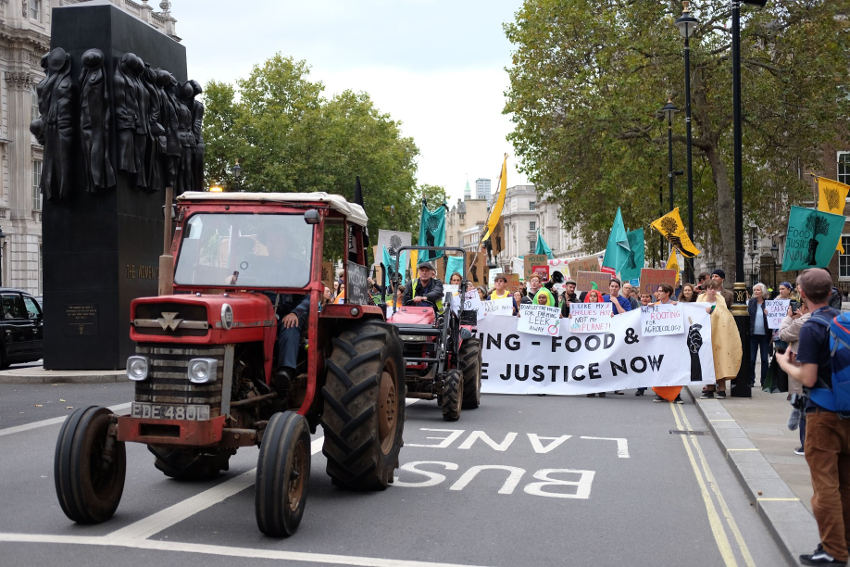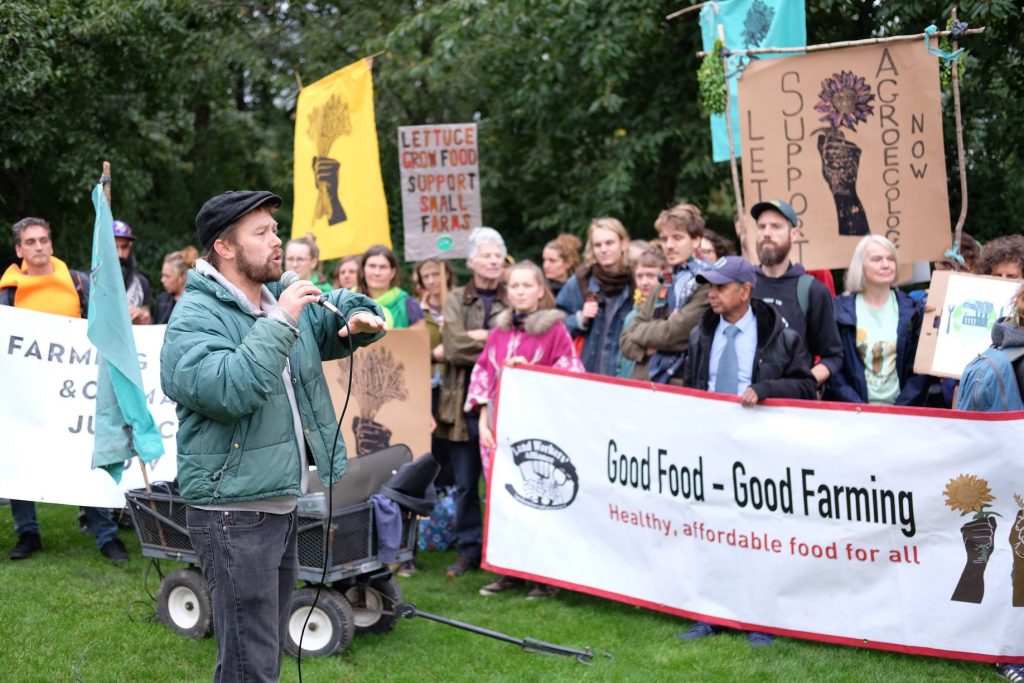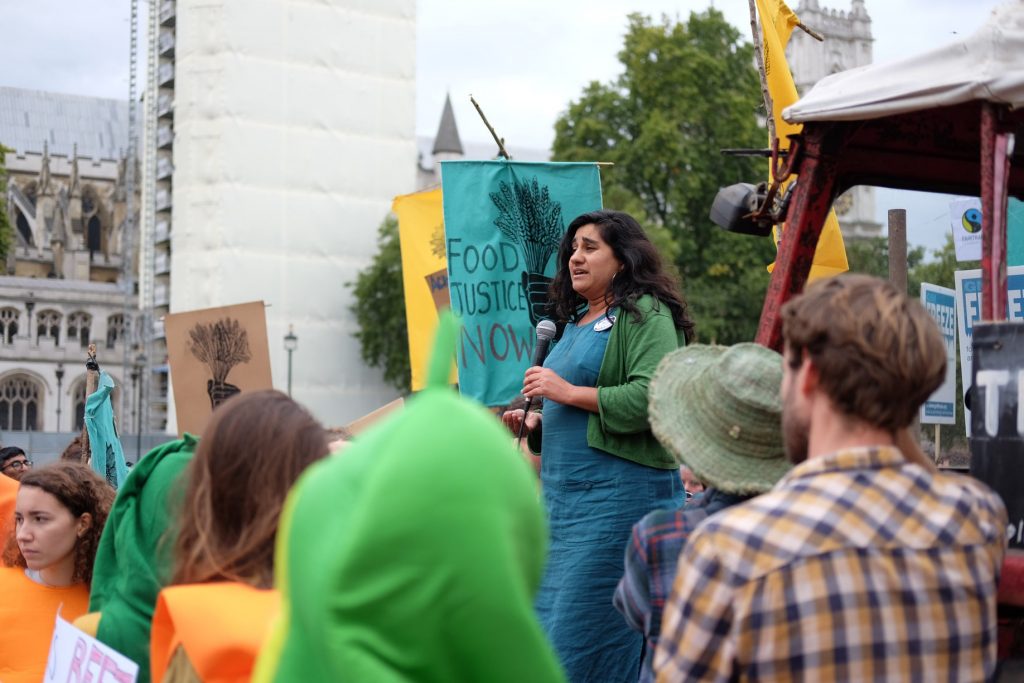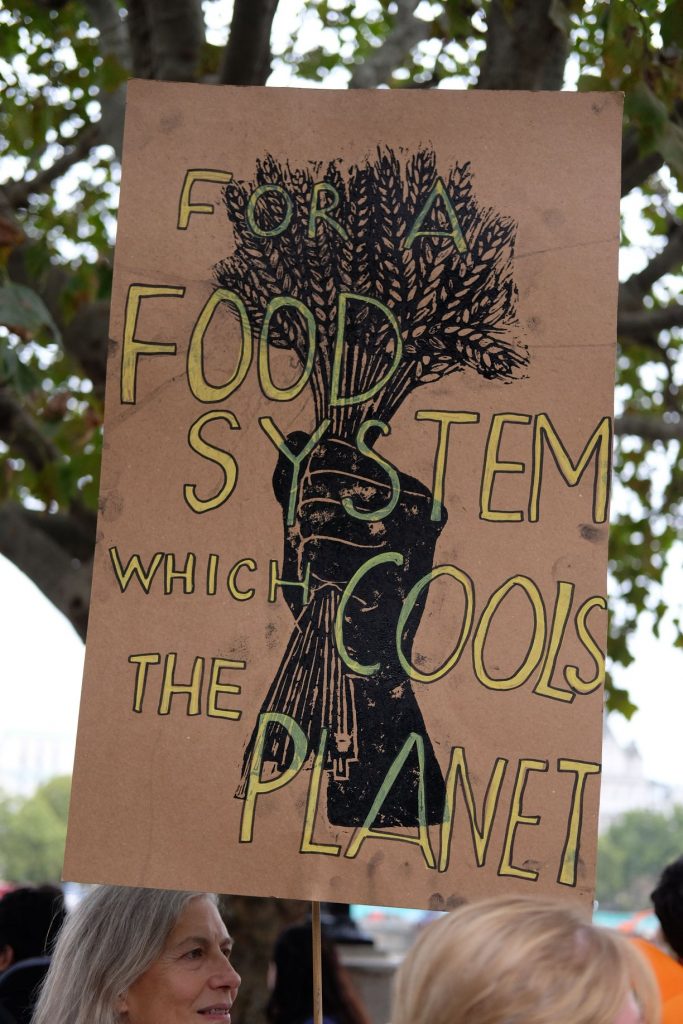Farming, Food and Climate Justice March in London

On the 5th of October in London, the Landworkers’ Alliance joined a diverse range of people and organisations to make the political point that the crises of farming, food and climate are integrally linked. They come from the same roots and can not be solved without joined up policy solutions, the movement said.

The march was preceded by a day of movement building workshops on both climate and food and farming issues at the Barge House, South Bank on the 4th of October.
Across communities people are experiencing problems that are rooted in the governance of farming, food and climate change. From farm closures because prices are undermined by cheap imports and supermarket power, to a food system that is driving climate chaos and destroying the environment; to extreme poverty and hunger caused by austerity; to the politics of the hostile environment that are destroying lives.
These issues are interconnected and approaches that fail to address these situations for everyone are not real solutions.

The marchers rejected policies that blame those most affected whilst protecting the wealth and power of the elites and corporations that are causing the damage. “We are marching for an immediate transition to a food and farming system with justice at its core, that works for people, the environment and the climate.”, read one of their annoucements.
At the march, the people demanded for a peasant led agroecological system that protect the soils, the climate, wildlife and biodiversity. They rejected factory farms, chemicals and pesticides that destroy the environment and drive climate change. They also demanded for reorganising food production to support local economies and reduce reliance on imports. Demands were made for fair prices for farmers and fair pay for everyone working in farming so that people can make a decent living producing good food, while also keeping food affordable.
“We want more farmers, foresters and people working on the land. We want better education about ecology and more understanding of production issues. Robots, GMOs and techno-fixes do not solve the real problems, but reinforce the status quo.” the marchers said in a statement.
At the march, the people also demanded that everyone have access to healthy, appropriate, affordable food -no matter what their income or background, so that no-one is going hungry.
The ‘market’ is failing and the demonstration called to regulate the multinationals and supermarkets so that farmers can get fair prices and all people can access healthy affordable food. They also called for reducing UK carbon emissions to net zero by 2030 to keep warming below 1.5°C. The climate emergency demands systematic and urgent action now, above and beyond what the market can manage.

“This transition to net zero emissions must recognise structural inequalities and power differences within society and between countries. The costs should be carried by those with the wealth and privilege to afford it, and not disproportionately affect people already marginalised.”, the marchers said.
Industrial agriculture is also eroding soils, polluting water systems, and driving mass extinction of wildlife, including insects and pollinators crucial to agricultural systems. However, the land use system can and should be sequestering carbon and enhancing biodiversity.
Food, farming and climate policies must be joined up and with a clear goal of food sovereignty and climate justice.
